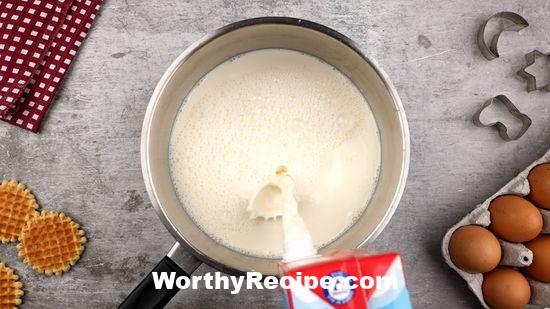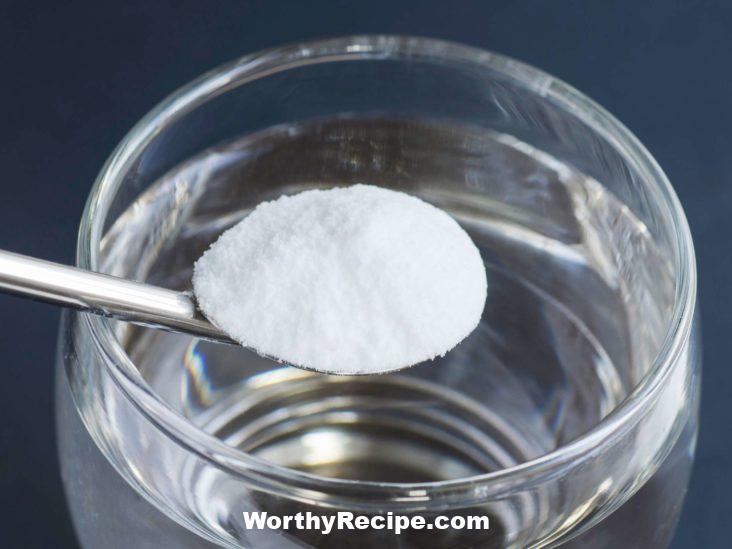Does Boiled Milk Last Longer?
Milk is an essential food in our diet, and we all want it fresh, safe, and affordable. But milk is perishable, and keeping it fresh for a more extended period can be quite challenging. One of the popular questions often asked by many people today is whether boiled milk lasts longer than unboiled milk. This article aims to answer this frequently asked question in detail.
Introduction
Boiling milk is an ancient preservation method that has been in use for a long time. This technique involves heating the milk to a certain temperature, thereby killing most of the microorganisms responsible for spoilage. The question of whether boiled milk lasts longer than unboiled milk arises from this traditional preservation method.
The importance of knowing the answer to this question lies in extending the longevity of milk. When you know how to preserve your milk properly, you can avoid frequent grocery trips and save money. Additionally, understanding how boiling affects the shelf life of milk can help reduce food waste.
The Science Behind Boiling Milk
The spoiling process of milk is accelerated by microbes such as bacteria, yeast, and mold. When these microorganisms multiply beyond a certain point, they break down the nutrients in the milk, resulting in spoilage. Boiling is one way to kill these microorganisms.
When you boil your milk, you expose it to high temperatures that begin at about 70 degrees Celsius (158 F). At this temperature, some of the most sensitive microorganisms like Listeria monocytogenes are destroyed. The heat disintegrates their membranes and proteins, killing them in the process.
As boiling continues beyond 70 degrees Celsius (158 F), other heat-resistant organisms begin to die off too. By 100 degrees Celsius (212 F), most bacteria, yeasts, and molds in the milk should be dead. Boiling prevents further growth of any surviving microbes and slows down the rate of spoilage in your milk.
Effectiveness of Boiling in Preserving Milk
Boiling is a simple and effective way to preserve milk. It destroys harmful bacteria, reduces the chance of foodborne illnesses, and prolongs the shelf life of milk. However, as with any method of preserving food, it has its limitations.
Although boiling kills most of the bacteria present in milk, some types are heat-resistant and can’t be eliminated solely through heating. These bacteria may continue to grow in the milk even after boiling. Besides that, some bacterial spores are difficult to eradicate even with boiling since they form a protective coating that can resist high temperatures.
Therefore, although boiling milk makes it safer for consumption by killing off numerous bacteria, it does not guarantee that your milk will never spoil if improperly stored or contaminated after boiling.
Factors That Affect Milk Spoilage
Several factors contribute to the spoilage of milk. Some of them include:
Temperature
Temperature plays a vital role in how long your milk stays fresh. Higher temperatures facilitate faster microbial growth, leading to quicker spoilage while lower temperatures slow down growth. Thus proper storage temperature for milk is essential.
You can use these tips to store your boiled milk:
- Store your boiled milk at 40°F (4°C) or below for optimal preservation.
- Avoid leaving your boiled milk out at room temperature for more than two hours to minimize microorganism growth
- Don’t put boiled milk that has been chilled in a freezer for more extended periods; this will lead to spoilage.
Exposure to Air
Air is one of the critical factors that contribute to milk spoilage; it contains microorganisms that can accelerate its deterioration. The air in your storage container affects the quality of your boiled milk, especially if you keep it exposed for long durations.
You can use these tips to help protect against exposure to air:
- Store your boiled milk in an airtight container to prevent microbial contamination
- Squeeze out as much air as possible before storing boiled milk in a covered jar in the refrigerator or freezer
- Avoid shaking or stirring the lid after you cover your boiled milk. This will introduce more air and lead to accelerated spoilage.
Light Exposure
Milk is sensitive to light, particularly UV rays, which can damage its nutrients and accelerate spoilage. You might have noticed that most milk packaging comes in opaque cartons, bags, or bottles to protect against light exposure.
You can use these tips to help protect against light exposure:
- Don’t store boiled milk near windows or areas where it is exposed to direct sunlight
- If your storage container is clear, consider wrapping it with an opaque cover when storing
- Store your boiled milk at the back of the refrigerator or fridge door instead of on its shelves where light enters easily.
Contamination
Milk is highly susceptible to contamination from environmental pollutants, dirty hands, utensils, or unclean containers. Cross-contamination from dairy equipment and other food items can also cause spoilage.
You can use these tips to help protect against contamination:
- Clean your jar or container thoroughly before storing boiled milk
- Avoid using dirty utensils to measure or stir the milk
- Ensure your hands are clean and dry before touching boiled milk
- Don’t store your boiled milk close to other foods in the fridge. This minimizes the possibility of cross-contamination.
Does Boiled Milk Truly Last Longer Than Unboiled Milk?
The short answer is yes. Boiling is an effective means of killing microorganisms, thereby prolonging the shelf life of milk. However, it’s essential to note that boiling doesn’t make milk indestructible—subsequent contamination may lead to its spoilage.
Benefits of Boiled Milk over Unboiled Milk
Boiling offers several advantages over unboiled milk, which makes it a sought-after preservation method. Below are some ways boiling milk can improve its shelf life.
Microorganisms are destroyed in boiled milk.
Incorporating boiled milk as a part of your diet reduces the risk of infection caused by pathogens like Listeria monocytogenes, Escherichia coli (E.coli), Salmonella spp., and other harmful bacteria. While boiling tends to reduce the nutritional value of vitamins B12 and C present in fresh raw milk, it’s important to note that some essential nutrients like calcium and vitamin D are preserved during boiling.
Enzymes that cause milk spoilage are deactivated by boiling.
Milk contains enzymes known as proteases that cause spoilage by breaking down milk proteins. Boiling deactivates these enzymes and prolongs the shelf life of milk by directly diminishing its spoilage rate.
Boiling prolongs the shelf life of milk.
While raw milk can be canned or frozen, these methods typically affect the taste and quality of the milk. Boiling, on the other hand, extends the longevity of your milk while preserving its taste and quality. Milk that has been boiled tends to last for a more extended period than cheeses made from raw milk.
Comparison Between Boiled And Unboiled Milk Shelf Life
The lifespan of boiled and unboiled milk is different. This section highlights some difference in their shelf lives.
- Fresh unboiled milk lasts for approximately five days if stored at a temperature range of 0°C-4°C while refrigerated.
- Boiled milk lasts for around seven days if stored at temperatures below 40°F (4°C) in an airtight container in the refrigerator.
- You can freeze boiled milk that hasn’t been exposed to air nor tampered with for up to eight weeks without it going bad. However, freezing causes a slight breakdown in texture, consistency, and taste over time.
How Long Does Boiled Milk Last?
The duration that boiled milk lasts depends on how you store it after boiling. Here are some essential tips on safe storage for boiled milk:
Duration For Refrigeration
Your boiled milk will remain fresh for seven days when safely refrigerated between 32F to 39F (0C to 4C) degrees Celsius if stored in an airtight container. When storing boiled milk, keep it in its original container or use a clean, sterile jar to maximize preservation.
You should also avoid storing your milk in the refrigerator door; it is safest to store it in the main compartment to minimize temperature fluctuations. In short, keeping your boiled milk cold and covered is essential for extending its shelf life.
It’s important to note that factors like humidity, jar cleanliness and hygiene of your fridge can influence how long your milk stays fresh when stored in a fridge.
Factors To Note When Storing Boiled Milk
You can consider these factors when storing your boiled milk:
- Store your boiled milk in a clean and disinfected glass jar or container
- Avoid freezing boiled milk that has already been chilled in the refrigerator, as this will decrease its freshness
- Cover with an air-tight lid every time you open the container as exposure to external elements speeds up spoilage
- Dry the container before pouring boiled milk into it. Moisture can lead to microbial growth.
Duration For Freezing
If you plan on saving boiled milk for future use, you can freeze it in small portions. Freezing boiled milk allows you to extend its shelf life by several weeks. You must first let it cool before transferring it into freezer-safe jars or bags stored away from moisture or light. Frozen boiled milk can last up to two months without going bad.
Procedure For Freezing Boiled Milk
You should take these steps when freezing boiled milk:
- Let the boiled milk cool down before placing it in an airtight freezer-safe container
- Seal off the container tightly while leaving some room from the freezer
- Label the container with the date of storage, so you know how long it has been stored.
Guidelines For Safe Storing of Boiled Milk
When it comes to preserving milk, safety is a non-negotiable priority. These general tips should guide you on how to store boiled milk safely:
General Tips For Keeping Boiled Fresh
You can use these tips to help protect your boiled milk:
- Always check the expiration date on your milk carton when buying it
- Cook or boil milk instantly after thawing it when using previously frozen boiled milk.
- Refrain from storing raw and boiled milk together as raw milk can contaminate boiled milk easily
- If storing boiled milk that hasn’t been used, pouring out and refilling is not recommended; this may cause contamination and spoilage that would defeat the purpose of boiling in the first place.
Hygienic Handling Procedures:
You can use these tips to keep hygienic handling procedures in check:
- Always wash your hands before touching open containers or surfaces that will interact with boiled milk
- Avoid using dirty utensils or jars to scoop or transfer boiled milk
- Clean and disinfect the jar and all utensils used in preparing or serving the boiled milk before and after use to minimize contamination risks
Importance of Covering Container Every Time After Opening:
A crucial step in prolonging the shelf life of boiled milk is keeping it covered at all times. To ensure maximum safety and freshness, you need to cover your boiled milk adequately. When left open for extended periods, vital nutrients in the milk will decompose, affecting its texture and taste. Furthermore, an open container can expose it to airborne microbes and cause spoilage.
Signs That Indicate Spoilage of Boiled Milk
Knowing when boiled milk has gone bad is crucial not only for safety reasons but also for maintaining the quality of your food. Some of the common signs indicating spoilage in boiled milk include:
- Foul-smelling odor: Boiled milk should have a neutral aroma. If it smells sour or rancid, it has spoiled and should not be consumed.
- Off-Color: Boiled milk should look white in color. Discoloration may indicate that the milk has gone bad.
- Undesirable Taste: spoiled milk will have an unpleasant taste accompanied by a sour or stale flavor.
If you observe any of these signs, discard the boiled milk as it is no longer safe to consume.
Reusing Boiled Milk Safely, Soup, or Tea?
You might wonder if boiling milk repeatedly is safe. The answer is yes; it’s perfectly fine to boil already boiled milk. However, there are some precautions that you should consider, like heating-burnt metal vessels used for boiling.
Is It Safe To Use Already Boiled Milk Again?
Boiling already boiled milk again isn’t risky as long as proper handling procedures are followed. However, it’s vital to ensure that contaminated trays or utensils aren’t used while preparing drinks like tea or soup with already boiled milk since the process won’t sanitize them fully.
Precautions to Consider Before Reusing:
You can use these tips when reheating stored boiled milk:
- Ensure the utensils used to handle boiling milk are sterile
- Select any temperature controls settings appropriately recommended for milk.
- Heat the boiled milk gently and avoid overheating it, as this could damage its nutrients or bactericidal properties
FAQs on Boiled Milk and Its Shelf Life
Can Raw (Unpasteurized) Milk Be Boiled?
The process of boiling affects raw milk nutrients and health benefits, but pasteurization is recommended. It is essential to note that boiled raw milk still carries a higher risk of contamination compared to commercial pasteurized milk.
What Is The Best Method Of Boiling?
You can boil your milk by putting it in a pan and stirring frequently until it starts to steam. You can also heat water using a microwave-safe container before pouring in the milk gradually while stirring. Ensure proper cleaning and disinfecting of all utensils used before storing boiled milk. When boiling with a stove or gas, always consider using high-heat-resistant glass containers.
Can Boiling Make Up For Improper Storage?
No, boiling cannot make up for improper storage.
Can boiled milk last longer than regular milk?
Boiling milk can prolong its shelf life, but the exact duration depends on various factors like the temperature of boiling and how you store it. Boiled milk can last for 2-3 days longer than untreated milk if stored properly in a container with a tight lid.
Does boiling milk destroy nutrients?
Boiling milk can decrease the nutrient value of some vitamins, like vitamin C and thiamine. However, boiling also makes other nutrients more available for absorption, such as calcium and protein. Hence, the overall impact of boiling on milk’s nutrient content is complex.
Is it safe to drink boiled milk after it cools down?
After boiling, you should let the milk cool down to room temperature and then immediately refrigerate it in an airtight container. If stored well and consumed within 5-7 days after boiling, it’s generally safe to drink boiled milk. But make sure that the milk doesn’t show any signs of spoilage like bad odor, mold formation, or curdling.
Can you boil days-old milk to make it last longer?
Boiling days-old, stale or expired milk doesn’t make it safe to consume. The harmful bacterial growth that occurs in spoiled milk can’t be prevented or eliminated by boiling. It’s always better to discard such milk and buy fresh ones instead of risking foodborne illness.






